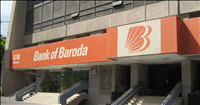Korea weighs measures to avert US-type financial crisis
02 Sep 2008
Mumbai: South Korean Korean president Lee Myung-bak will hold a meeting with a group of select panelists on 9 September to discuss measures aimed at revitalising the slumping economy, the presidential office said on Tuesday.
South Korea is faced with the spectre of a massive exodus of cash in September with the maturing of a bunch of corporate bonds. Coming amidst a steady weakness in the Korean currency, the won, this may become one of the biggest financial challenges for the economy, the Hyundai Economic Research Institute said in its latest report.
The discussions, convened by the president, will focus on livelihood issues amidst rising prices and growing interest rates, the presidential office Cheong Wa Dae said.
Nearly $6.71 billion in bonds held by foreigners will mature in September, the Hyundai Research report noted, adding if they all opt to liquidate the bonds, many local financial firms and corporations may go into bankruptcy.
In such an eventuality, chances are that it will result in a sharp depreciation of the Korean won and a rise in interest rates, the report pointed out.
The findings of the report have been based on the the recent exodus of foreign funds and concerns expressed by market participants over a possible liquidity constraint in September.
Operating cash flow of Korean firms dropped to its lowest in 10 years last year due to sluggish sales and delays in cash inflows, according to LG Economic Research Institute.
The combined operating cash flow of 601 non-financial companies was equal to 4.5 per cent of their total revenue in 2007, the lowest level since the 3.7 per cent it posted in 1997, the report found.
The corporate financial crisis together with the country's rapidly worsening financial soundness could snowball into a larger and deeper economic challenge for South Korea, the report warned.
This could push South Korea into a US-type financial crisis as the country's financial soundness has been worsening at an alarmingly fast pace, the report noted.
''It isn't right to exaggerate the crisis scenario at this point. When comparing what we owe with what others owe us, there's around $100 billion surplus,'' a Cheong Wa Dae official said.
Cheong Wa Dae, however, said the September crisis scenario was exaggerated.
''Chances are slim that Korea will undergo a financial crisis. But the country is not immune from such a crisis because there exists potential risks that can lead to financial crisis depending on the future development of economic conditions,'' the report said.
''The US' financial soundness went downhill rapidly after it entered a stage of the financial crisis,'' it added. ''Given that our soundness is in bad shape, it is time to take a preemptive measure to prevent it from taking a US-type sudden bad turn.'''
The report said South Korea's financial soundness index dipped to 44.9 in the first quarter from 69.2 in 2007, due to slowing growth of housing prices, rising overdue rates in the banking sector and a fall in individuals' financial asset-to-debt ratio.
An measure less than 50 of the index that factors in home price growth rates, the overdue rate at lending institutions and the growth rate for individuals' financial asset-to-debt ratio, means that financial soundness is getting worse.
The Hyundai report also noted that the US credit crisis happened after its financial soundness fell to 13.8 in the first quarter from 37.3 in 2007.
Stock and currency markets, however, have been active as foreign investors scrambled to exit due to financial woes in the US market, a weakening of the local currency and the country's heavy debt burden.
According to the Bank of Korea, the capital account saw a net outflow of $5.8 billion in July, the largest monthly outflow since December 1997 when the country saw a net outflow of $6.37 billion.
The dollar outflow may force further borrowing of cash abroad by South Korean firms, further exacerbating the country's external debt and making the financial market more vulnerable to external shocks.
With rising foreign debts, Korea is expected to become a net debtor for the first time in eight years in the months to come. Net external credit for Korea plunged to $2.71 billion in June, a drastic setback from $13.16 billion in March.
South Korea's current account deficit reached $2.45 billion last month, bringing the cumulative shortfall for the year to July to $7.8 billion. The trade account finished $300 million in the black, but down sharply from a $3.5 billion surplus the previous month.
The South Korean won lost 7.63 per cent against the greenback this month, the second largest fall among the 19 major currencies.
The central bank had to pump out dollars to steady the won, which resulted in the reserves coming down to $247.5 billion in July, down $10.58 billion from the previous month, the biggest monthly drop in history.
The economy is expected to go further downhill, with economic growth falling to 3.9 per cent in the second half of the current year.


















.jpg)










